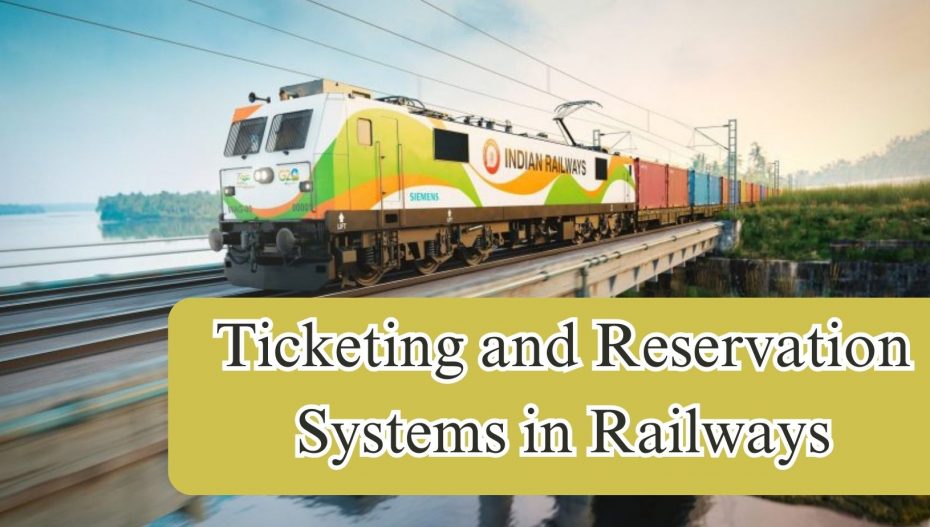A smooth travel experience for passengers is crucially important in the railway sector. Ticketing and reservation systems play a key part in this. Long lines and difficult procedures are just a few of the problems traditional systems often face. In this article, you will know how we can overcome these problems with traditional booking systems.
Online Reservations
Putting in place an online system for purchasing tickets and making reservations could significantly improve the efficiency of railway operations. Passengers can easily buy tickets from the comfort of their homes without traveling to busy stations. Websites for instance PNR Status can be used to track online bookings and the availability of tickets.
Mobile Apps
Creating user-friendly mobile apps might completely change how passengers engage with rail networks. These programs can provide a variety of functions, such as seat selection, ticket fares, and train monitoring. These applications improve the whole travel experience and provide users with access to vital information. Passengers can also use online websites for instance Fair Enquiry for ticket fare inquiries.
Self-Service Terminals
By putting up self-service terminals at train stations, travelers may independently purchase tickets, look up train timetables, and make reservations. To accommodate a range of passenger demands, these self-service stations can be fitted with touch displays. Self-service stations save wait times and improve accessibility for those with disabilities or language problems.
RFID Technology
RFID technology can help optimize ticketing and reservation operations by automating numerous functions. Tickets with RFID tags can make entering and leaving stations simple. Additionally, railway RFID scanners can automatically verify tickets, eliminating the need for manual inspections and lowering the opportunity for ticket fraud.
Integration with Payment Gateways
Passengers’ transaction processes can be made simpler by integrating ticket and reservation systems with safe online payment gateways. This guarantees a simple experience by letting customers select from a variety of payment methods and lowering the possibility of payment failures.
Data Analytics and Predictive Modeling
By utilizing these tools, ticketing and reservation systems can function much more effectively. Railways can correctly forecast passenger demand, optimize seat distribution, and foresee peak travel times by analyzing past data. This makes it possible to better organize resources and increase customer satisfaction.
Conclusion
To deliver a smooth travel experience to customers, railways must simplify ticketing and reservation systems. Railways can decrease wait times, increase accessibility, and boost customer satisfaction by implementing online platforms, mobile applications, self-service terminals, technology, payment gateways, and data analytics.












